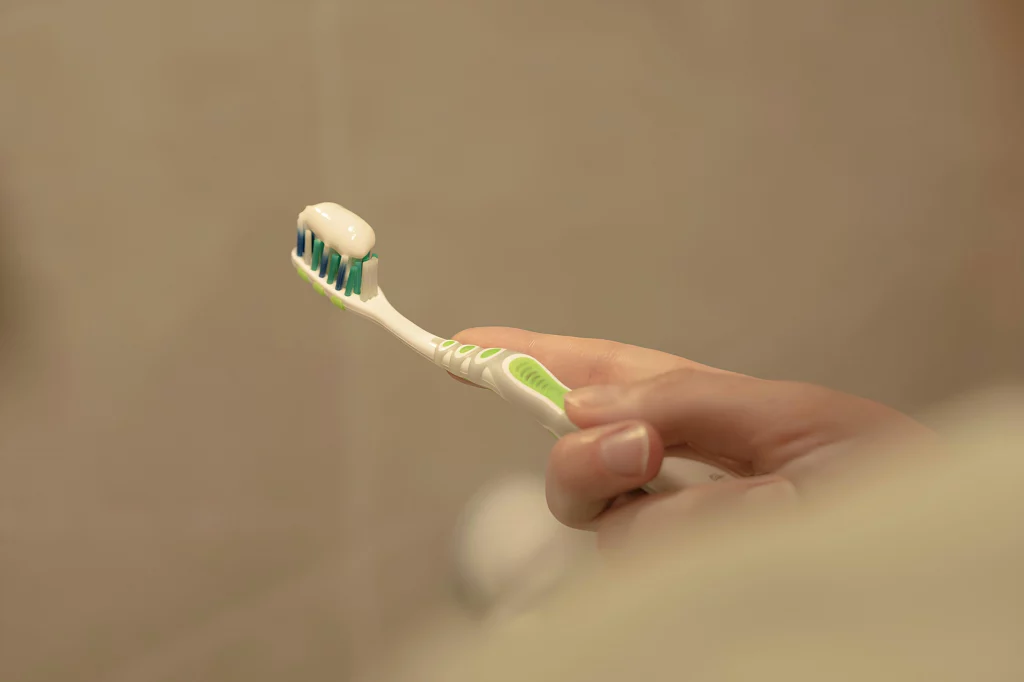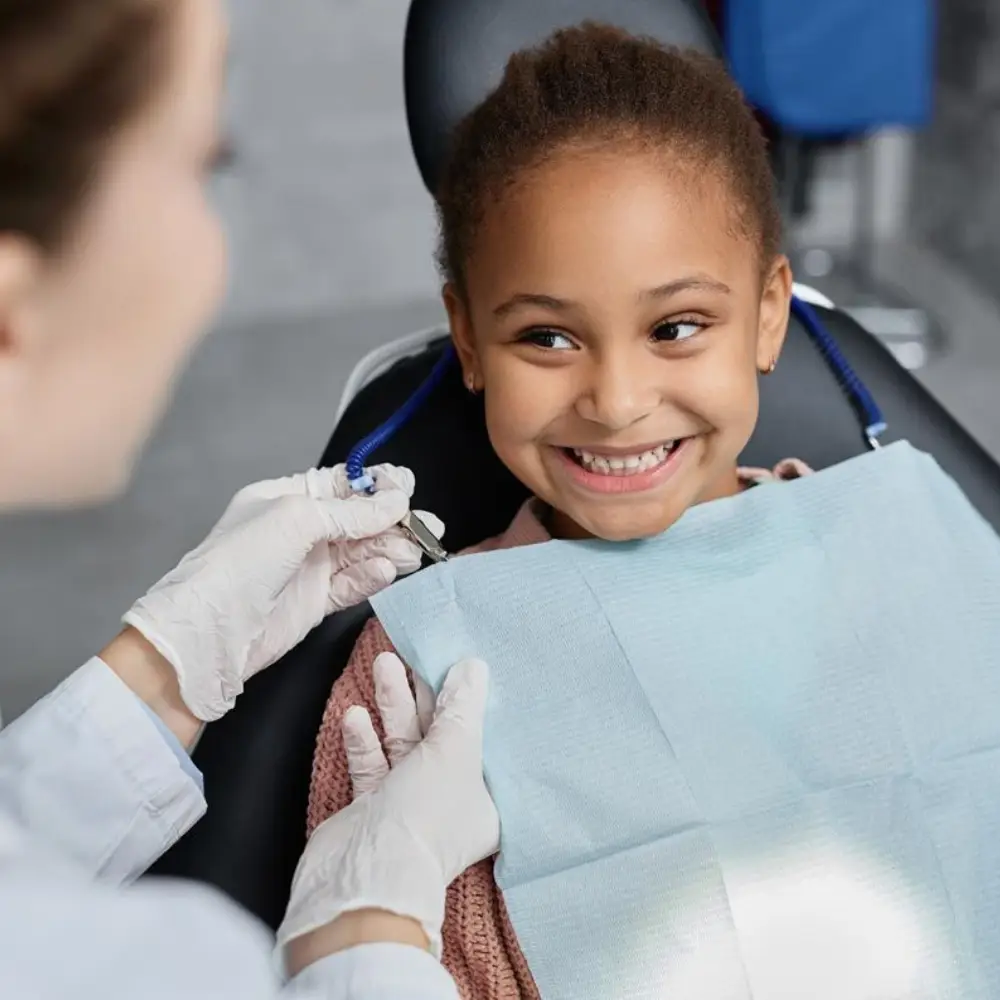It’s no secret that coffee stains teeth, leaving behind yellow or brown discoloration that can dull your smile over time. Coffee is not only a drink, it brings comfort, helps us focus and is dear to us every day. For coffee lovers, the unpleasant effect is stained teeth that make your smile look less bright over the years. We understand at GPD Dental. You shouldn’t have to decide between a coffee and a smile you feel confident about. The good news is that you don’t need to.
Because of recent progress in coffee and teeth whitening, you can enjoy your coffee and still keep your smile bright. We’ll take you through the ways coffee affects your teeth, explain some popular myths and suggest the best whitening options for people who drink coffee.
Why Coffee Stains Teeth
Coffee contains tannins, which are naturally occurring plant compounds known to bind to tooth enamel and gradually cause yellow or brown discoloration. Notably, darker roasts tend to have a higher concentration of these tannins, increasing the likelihood of staining. Prolonged exposure such as sipping coffee over a long period amplifies this effect.
Staining, however, is not the sole concern. Coffee’s acidic nature contributes to enamel erosion over time. As the enamel becomes thinner, teeth grow more porous, which accelerates the staining process and may lead to a dull, uneven appearance and heightened sensitivity.
A practical recommendation from GPD Dental: Rinse your mouth with water after consuming coffee and wait at least 30 minutes before brushing your teeth. This routine helps protect enamel and mitigates staining.
Traditional Whitening Methods and Their Limitations for Coffee Drinkers

If you’re a regular coffee drinker (which, honestly, who isn’t these days?), chances are you’ve cycled through a parade of whitening products—those toothpastes, strips, gels—all promising to erase those stubborn brown stains. Yet, in reality, these common whitening methods frequently underperform when faced with the persistent discoloration caused by coffee. The typical over-the-counter solutions might help a bit, but they rarely deliver the dramatic results one hopes for. The underlying issue is that coffee stains have unique properties that make them more resistant, so individuals who consume coffee regularly require more targeted, specialized approaches to achieve a truly brighter smile. Regular whitening products simply aren’t up to the task.
Whitening Toothpaste
Whitening toothpastes function much like surface-level cleansers—they incorporate mild abrasives that can effectively remove recent stains from the outer enamel, typically caused by coffee, tea, or similar substances. Yet, it’s important to recognize that these products are limited in scope: their action is confined to the very top layer of the teeth.
With prolonged exposure to staining agents, such as years of daily coffee consumption, discoloration often permeates deeper layers of enamel. Standard whitening toothpastes lack the ability to penetrate and address these intrinsic stains. Furthermore, excessive or improper use of abrasive formulas can gradually erode enamel, resulting in heightened tooth sensitivity and even increasing the risk of future staining.
For those seeking comprehensive and enduring whitening—particularly frequent coffee drinkers—professional dental treatments are advisable. These interventions target discoloration below the surface, offering more substantial and lasting results than over-the-counter alternatives.
Over-the-Counter Whitening Kits
Over-the-counter whitening kits, though widely accessible and inexpensive, frequently prove inadequate for addressing deeply embedded coffee stains. Their appeal lies in convenience; however, lower concentrations of bleaching agents and generic trays or strips often result in inconsistent application and suboptimal outcomes—particularly for individuals with longstanding discoloration.
The standardized design of these kits rarely accommodates the unique contours of each person’s teeth, leading to uneven whitening and, in some cases, irritation of the gingival tissues. The efficacy of such products is further limited by their inability to penetrate stubborn, tannin-induced stains associated with chronic coffee consumption.
In contrast, professional whitening procedures—such as those provided by GPD Dental—employ higher-grade agents and custom-fitted trays, allowing for a more controlled, individualized approach. This not only enhances safety and comfort but also significantly improves the likelihood of achieving noticeable, uniform results.
In-Office Whitening Treatments
Professional whitening treatments are notably effective at removing deep-set stains, including those resulting from long-term coffee consumption. That said, these procedures may occasionally cause temporary tooth sensitivity, particularly in patients with pre-existing enamel erosion—a condition that coffee’s acidity can actually exacerbate.
Typically, this sensitivity manifests as a brief, sharp discomfort when consuming hot or cold substances, and it generally subsides within 24 to 48 hours. The underlying cause? Whitening agents temporarily enlarge microscopic pores in the enamel to extract stains, which makes teeth more responsive to temperature changes.
For individuals who regularly drink coffee or already experience tooth sensitivity, it is advisable to inquire about whitening methods that are safe for enamel. Options such as desensitizing treatments before and after whitening are available to help ensure both comfort and confidence throughout the process.
New Whitening Technologies Perfect for Coffee Lovers

The landscape of teeth whitening has advanced considerably, particularly for individuals who regularly consume coffee. With recent developments in dental technology, it is no longer necessary to choose between enjoying coffee and maintaining dental aesthetics. Contemporary whitening methods have been formulated to address the persistent tannin stains and enamel degradation associated with coffee consumption, while prioritizing enamel preservation. These innovations offer more targeted and gentle solutions, making it increasingly feasible to achieve and sustain a bright smile. This discussion will examine the latest advancements in teeth whitening specifically tailored to address the challenges faced by coffee drinkers.
Laser Teeth Whitening
Laser-assisted whitening uses advanced light technology to activate whitening gels, speeding up the chemical reaction that lifts deep stains—including those from coffee, tea, and red wine. This technique delivers noticeably brighter results in a single visit, often within just an hour.
Unlike traditional methods, the laser’s precision ensures that the whitening gel is activated exactly where it’s needed—minimizing exposure to surrounding tissues. This targeted approach reduces the risk of irritation and enamel sensitivity, making it ideal for people with delicate teeth or limited time.
Custom Whitening Trays with Coffee-Specific Formulas
At GPD Dental, we provide custom-fitted whitening trays meticulously designed to address tannin stains from beverages such as coffee, tea, and wine. Each tray is individually molded to the patient’s dental structure, ensuring optimal distribution of our advanced whitening gel and facilitating thorough stain removal—something generic, over-the-counter options simply can’t replicate.
The tailored fit of our trays minimizes leakage and maintains consistent contact between the whitening agent and the enamel. This enhances whitening efficacy while reducing the likelihood of gum irritation or uneven results.
For optimal outcomes, adhere closely to the prescribed usage instructions. If you experience any sensitivity, please consult our team regarding desensitizing treatments.
Activated Charcoal and Enzyme-Based Treatments
Recent advancements in whitening treatments have shifted towards utilizing natural substances such as activated charcoal, coconut oil, and specific enzymes capable of breaking down stains. These methods aim to reduce reliance on harsh chemicals while effectively addressing dental discoloration. This approach is particularly advantageous for individuals who frequently consume coffee or possess heightened tooth sensitivity, as well as those with enamel compromised by regular exposure to acidic substances.
Furthermore, many of these naturally derived formulations are designed to be gentle on enamel and provide a soothing experience, rendering them suitable for consistent use or as supplementary care between professional dental procedures.
Tips to Protect Your Whitening Results While Enjoying Coffee
| Use a Straw | If you’re concerned about dental staining but still enjoy your daily coffee, consider using a straw—particularly for iced beverages. This method limits the coffee’s direct exposure to your teeth, which may help reduce surface discoloration over time. Adopting this simple habit could contribute meaningfully to maintaining a brighter, more attractive smile. |
| Rinse or Brush Soon After Coffee | After consuming your morning coffee, it’s advisable to rinse your mouth with water promptly, or to brush your teeth after approximately thirty minutes. This simple practice can help remove tannins before they adhere to your enamel and result in staining. It is important to delay brushing for about half an hour, as the acidity in coffee temporarily softens dental enamel; immediate brushing could inadvertently lead to enamel erosion rather than protection. |
| Schedule Regular Cleanings | Regular dental cleanings play a significant role in preserving both oral health and the aesthetic appearance of one’s smile. While daily brushing is beneficial, it does not fully address the extrinsic stains resulting from common dietary choices such as coffee or tea consumption. Professional interventions are necessary to effectively remove these surface discolorations and to manage plaque accumulation, which, if left unchecked, may contribute to periodontal disease. At GPD Dental, qualified dental hygienists employ advanced methodologies to thoroughly polish teeth. This approach not only enhances surface smoothness but also contributes to an overall brighter and healthier smile following each appointment. |
The GPD Dental Whitening Experience
At GPD Dental, we adopt a thorough and individualized approach to dental whitening, particularly for individuals who regularly consume coffee. Rather than offering a generic solution, we conduct a detailed assessment of each patient’s enamel integrity, degree of coffee-related staining, and daily habits. This enables us to recommend a whitening protocol that genuinely suits the unique needs of coffee enthusiasts.
Our whitening treatments are specifically formulated to address the persistent stains caused by coffee consumption, ensuring results that are not only effective but also enduring. Patients are able to maintain their preferred lifestyle without sacrificing the appearance of their smile.
In addition, we prioritize patient safety and comfort. Protective measures and gentle whitening techniques are integral to our process, minimizing sensitivity and safeguarding enamel throughout the treatment journey. At GPD Dental, our goal is to provide a whitening experience that is both safe and tailored to the demands of a coffee-loving lifestyle.
Common Myths About Coffee and Teeth Whitening
The discourse surrounding coffee consumption and dental aesthetics is frequently muddled by misinformation. Individuals who enjoy coffee are regularly confronted with conflicting claims regarding its impact on tooth coloration and the efficacy of whitening interventions. Such misconceptions not only generate unnecessary concern but may also contribute to inappropriate oral care decisions. In this analysis, we will critically examine prevailing myths about coffee and teeth whitening, aiming to provide evidence-based clarity for those seeking to maintain both their caffeine rituals and dental health.
Coffee Always Ruins Whitening Results
Contrary to popular belief, it is entirely feasible to maintain both dental aesthetics and regular coffee consumption. With conscientious oral hygiene practices and advancements in whitening technologies, individuals need not forgo their preferred beverages out of concern for dental discoloration. At GPD Dental, our objective is to support patients in achieving and sustaining optimal oral health, all while enjoying their daily routines without undue worry.
Whitening Weakens Teeth
Certainly. When overseen by qualified dental professionals, contemporary whitening procedures are generally considered safe and effective. Dentists utilize specifically formulated agents and carefully controlled application methods to enhance tooth brightness while protecting the integrity of enamel. Professional supervision is key—it allows for the selection of appropriate concentrations and techniques tailored to individual needs, thereby reducing the likelihood of adverse effects such as sensitivity or enamel erosion. Ultimately, this ensures both the efficacy and safety of the whitening process.
Conclusion: Enjoy Coffee Without Sacrificing Your Smile
At GPD Dental, we recognize the importance of maintaining both personal habits and oral health. For individuals who enjoy their daily coffee, concerns about dental staining are all too familiar. Our clinic addresses this issue directly by offering advanced, coffee-specific whitening treatments designed to effectively remove persistent stains while safeguarding enamel integrity.
Our approach centers on personalized care, ensuring that each patient receives treatment tailored to their unique needs, minimizing sensitivity and promoting lasting brightness. You no longer need to compromise between enjoying your preferred beverages and achieving a confident, radiant smile.
To explore these innovative solutions further, we invite you to schedule a consultation at GPD Dental. Take an informed step toward enhancing your dental aesthetics without sacrificing your daily routine.
Frequently Asked Questions:
1. How soon after whitening can I drink coffee again?
To protect your newly whitened smile, it’s important to wait at least 24 to 48 hours before drinking coffee or consuming any dark-colored beverages. During this time, your enamel’s microscopic pores are still open from the whitening process, making your teeth more vulnerable to absorbing stains. Allowing this window gives your enamel the chance to naturally remineralize and close those pores, helping to lock in the brightness and reduce the risk of discoloration. Patience during this critical period will help ensure your whitening results last longer and keep your smile looking fresh and radiant.
2. Will whitening make my teeth sensitive to coffee?
Some sensitivity after whitening is normal but typically temporary and mild. At GPD Dental, we understand that coffee drinkers may be more prone to this issue due to enamel exposure from acidity and staining compounds. That’s why we use specially formulated whitening products designed to minimize discomfort and protect your teeth’s enamel. Our treatments often include desensitizing agents that soothe nerves and strengthen enamel, helping you enjoy a brighter smile without the usual sensitivity concerns. Rest assured, your comfort is a top priority throughout your whitening journey with us.
3. Can I whiten my teeth at home if I drink coffee daily?
Certainly. While over-the-counter whitening products may offer some benefit, individuals who frequently consume coffee should consider consulting GPD Dental for optimal results. Our practice provides custom-fitted trays, ensuring that whitening gels specifically formulated for coffee stains are applied evenly and effectively. This tailored method not only improves whitening outcomes but also reduces the risk of enamel damage and sensitivity. By relying on professional expertise, patients can achieve a brighter smile while safeguarding their long-term oral health.
4. How often should I get professional whitening if I drink coffee daily?
Generally speaking, for individuals who frequently consume coffee, tea, or red wine, professional whitening touch-ups are often advisable every six months; others who experience fewer stains may find annual treatments sufficient. Consistent and effective oral hygiene practices can help extend the time between treatments. It’s important not to overuse whitening products, as excessive whitening increases the risk of tooth sensitivity and enamel erosion. For guidance tailored to individual needs and lifestyles, consulting with GPD Dental is recommended; their professionals can provide a personalized schedule to help maintain optimal results.
5. Are natural remedies like baking soda effective for coffee stains?
Certainly. Whitening toothpaste is generally effective for addressing minor surface stains; however, many formulations rely on abrasive agents. Excessive use of these abrasives can gradually erode dental enamel, leading to heightened tooth sensitivity and potential structural damage. In contrast, professional whitening treatments—administered by dental practitioners—utilize precisely formulated compounds under controlled conditions. This approach ensures both superior efficacy and safety, offering more noticeable and lasting results without compromising enamel integrity.


